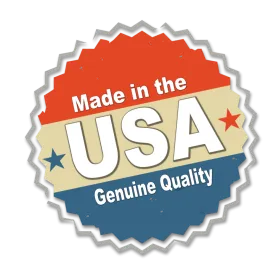The FTC continues its pursuit of deceptive Made in USA claims, this time with allegations that company Lions Not Sheep and its owner, Sean Whalen, marketed apparel as being “Made in USA,” “Made in America,” “100% AMERICAN MADE,” and “BEST DAMN AMERICAN MADE GEAR ON THE PLANET” when in fact the products were made in China. According to the FTC, Whalen appeared in social media posts claiming he could conceal the fact that his politically-themed hats, t-shirts, sweatshirts, and other apparel were of Chinese origin by removing the labels and replacing them with express markings that they were “Made in USA.”
The FTC’s proposed order imposes a $211,335 monetary judgment and prohibits the company from misrepresenting their products as being “Made in USA.” Lions Not Sheep and Whalen also must make all disclosures required under the Textile Act and the FTC’s Textile Rule, including by identifying the country of origin from which their textile products actually are made. Lions Not Sheep must notify all consumers who purchased their products on or after May 1, 2020, so that the FTC may effectively administer a refund program. The sample notice Whalen will have to send consumers expressly informs them that “the product you bought was not all or virtually all ‘Made in USA.’ In fact, although we screen or embroider products in the USA, many of the items we sell are imported.”
This action serves as another reminder for retailers that “Made in USA” claims are only proper where:
-
the final assembly or processing of the product occurs in the United States, all significant processing that goes into the product occurs in the United States, and all or virtually all ingredients or components of the product are made and sourced in the United States; or
-
a Clear and Conspicuous qualification appears immediately adjacent to the representation that accurately conveys the extent to which the product contains foreign parts, ingredients or components, and/or processing; or
-
the product is last substantially transformed in the United States, the product’s principal assembly takes place in the United States, and United States assembly operations are substantial if making a claim that a product is assembled in the United States.





 />i
/>i

